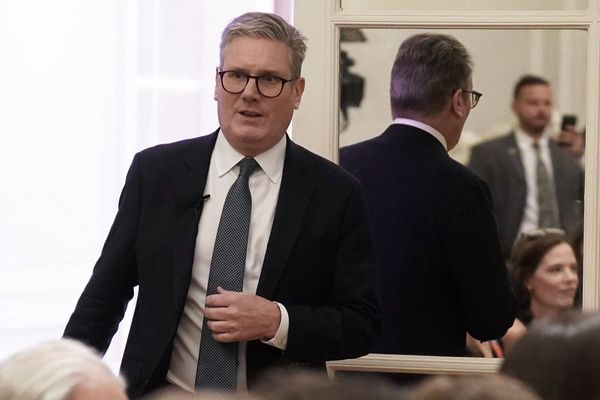Irish women have not reached full equality yet despite massive strides in recent years, an expert says.
According to UCD Gender Studies Director Dr Mary McAuliffe, Irish society as a whole still have work to do "but we're getting there". She told Dublin Live: "Women's lives in Ireland, say, six or seven decades ago would've been very constricted by both society and expectations of society that women's place was in the home."
This, she said, was even written into the Constitution in articles 41.1 and 41.2 which stated that a woman's life in the home was very important and that all women should be married, mothers and domestic. There were things like the marriage bar, which prevented women from taking certain jobs, particularly in the civil or public service once they got married. Most women were expected either to work very briefly when they were single, or to not work outside the home at all.
Read more: Dublin museum celebrating Irish women with special event for International Women's Day
Dr McAuliffe said: "And I think what changed really is feminism. Second wave feminism began in Ireland about the early 1970s. From then on, there were campaigns to introduce gender equality in terms of equal access to the workplace, equal pay, equal education, full reproductive rights and all the things we expect a woman to have to be a full and equal citizen.
"Now, it didn't come easy and it took a very, very long time. And there was a lot of backlash." In 1983, the eighth Amendment was put into the Constitution and denied access to full reproductive rights for women. This Amendment was only repealed in 2018. "So, it has taken four or five decades to go from where we were truly 'second class citizens' to today, where I won't say [women] are completely equal but we're getting there."
According to Dr McAuliffe, there's still a lot of work to be done to get women a truly equal and equitable place in society. Many issues exist to this day that haven't been fully solved. "There's still a gender pay gap, there's still a gender pension gap. We know that new problems have come up over the years, particularly in terms of the way women are treated on social media. The 'pink tax' continues to be on products that women buy particularly, and ideas about women and their place in the home show that the care duty still falls on women."
Even abortion, which was made legal in 2018, is still a fairly recent development - and it's still highly restrictive. Misogyny and stigma around women-only issues such as menopause, period cramps and infertility are all issues that still remain in society. People still have their own ideas and misconceptions about aging women, about queer and trans women. "It's very difficult to change the laws, but changing the culture is even more difficult," Dr McAuliffe says.
When compared to other, more equitable countries in Europe, Ireland's progress has varied. "I think for a long time we were behind and of course that was both [due to] the state being very conservative and the dominance of the Catholic church. But from the 1990s, we began to catch up and I think we're pretty much equal with many of the more liberal, equitable countries in Europe now. We are not doing too bad in terms of being a more secular or equal society."
The Gender Studies Director is hopeful about the future. "We haven't rested on our wins, we have continued the fight. There's some great feminist activists and feminist organisations in Ireland, and particularly young women are coming to feminism, which is great." The issues unique to women are getting more recognition in Ireland and there are already talks of tailoring the workplace to women's life cycles as well, instead of only men's.
Dr McAuliffe finally said: “I’m positive towards the future because I see as a lecturer in a university all the young feminists, both male and female, wanting to fight those fights and wanting to achieve better security, better equality [for women], and rights for the LGBT people in society. So I feel optimistic for the future.”
READ MORE
'I kicked my drug addiction after 26 years - and now I want to help others'
'Ireland has given me so many opportunities and I want the same for my daughter'
Gardai vow to tackle street level dealers operating in Dublin as we witness 15 arrests in one day
Dublin group is hosting exciting online event for International Women's Day
RTE presenter Anna Geary announces she's expecting first child in touching Instagram post
Sign up to the Dublin Live Newsletter to get all the latest Dublin news straight to your inbox.







